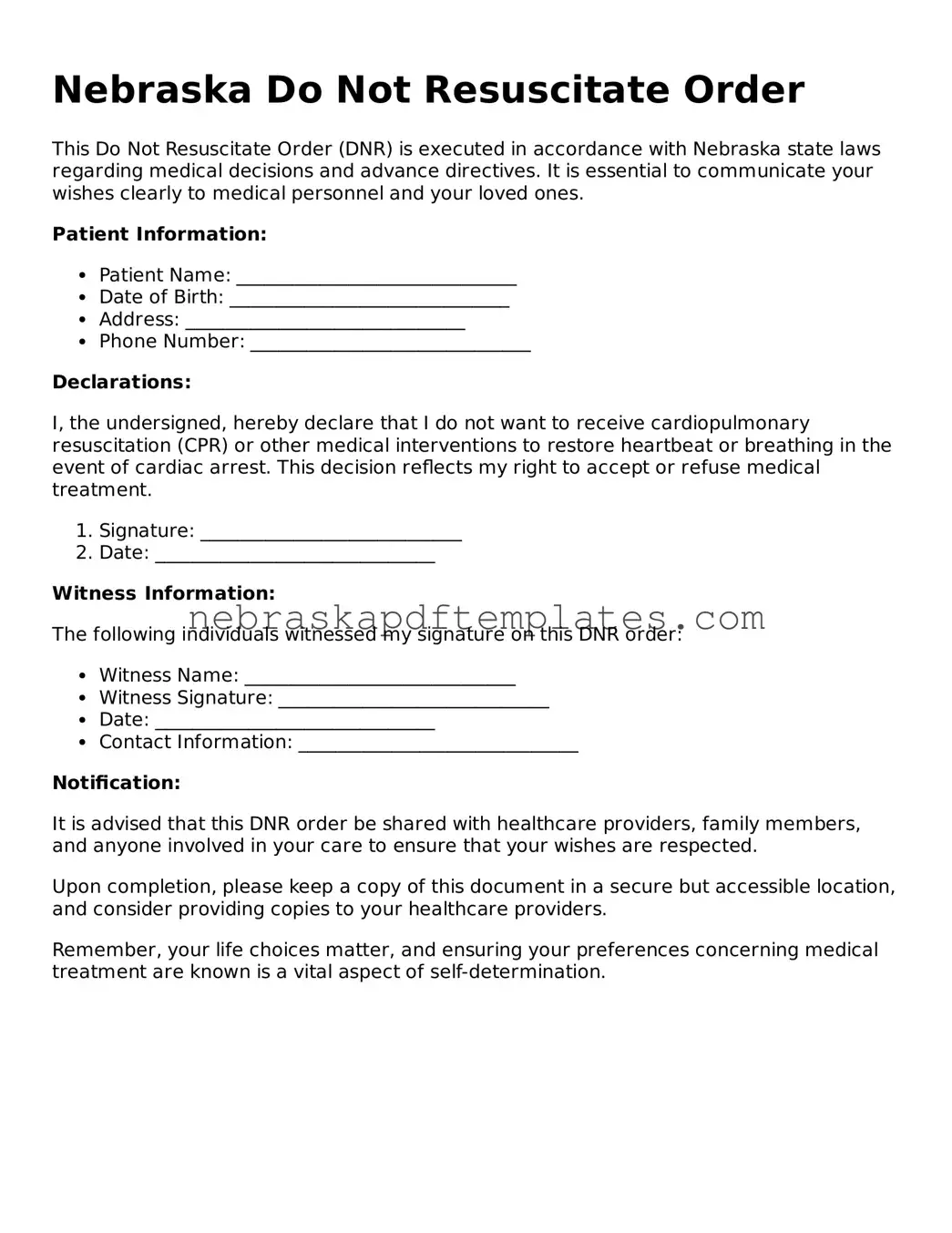What is a Do Not Resuscitate (DNR) Order in Nebraska?
A Do Not Resuscitate Order is a legal document that allows a person to refuse resuscitation efforts in the event of cardiac arrest or respiratory failure. In Nebraska, this order is recognized by healthcare providers and is intended to honor the wishes of individuals regarding end-of-life care.
Who can request a DNR Order in Nebraska?
Any adult who is capable of making informed decisions about their medical care can request a DNR Order. This includes individuals who have a terminal illness, a serious health condition, or those who simply wish to avoid aggressive medical interventions. Additionally, a legal guardian or an authorized healthcare proxy can request a DNR on behalf of someone who is unable to make decisions.
How is a DNR Order completed in Nebraska?
To complete a DNR Order in Nebraska, an individual must fill out the official Nebraska DNR Order form. The form requires the signature of the individual and must also be signed by a licensed physician. Once completed, the form should be kept in a location that is easily accessible to healthcare providers, such as a hospital or care facility.
What should I do with the DNR Order once it is completed?
After completing the DNR Order, it is crucial to provide copies to relevant parties. This includes:
-
Your primary care physician
-
Any healthcare facility where you receive treatment
-
Family members or caregivers who may be involved in your care
Keeping the original form in a safe but accessible place is also recommended, ensuring it can be presented when necessary.
Can a DNR Order be revoked or changed?
Yes, a DNR Order can be revoked or changed at any time by the individual who signed it. To do so, the individual should inform their healthcare provider and complete a new DNR Order if they wish to establish different preferences. It is essential to ensure that all relevant parties are aware of the revocation or changes to the order.
What happens if a DNR Order is not available during an emergency?
If a DNR Order is not available during a medical emergency, healthcare providers will typically proceed with standard resuscitation efforts. It is important to have the DNR form readily accessible to avoid confusion and ensure that your wishes are respected in such situations.
Are there any legal protections for healthcare providers regarding DNR Orders?
Yes, healthcare providers in Nebraska are protected from legal liability when they follow a valid DNR Order. As long as the order is properly executed and documented, medical professionals are legally obligated to honor the patient's wishes as outlined in the DNR Order.

